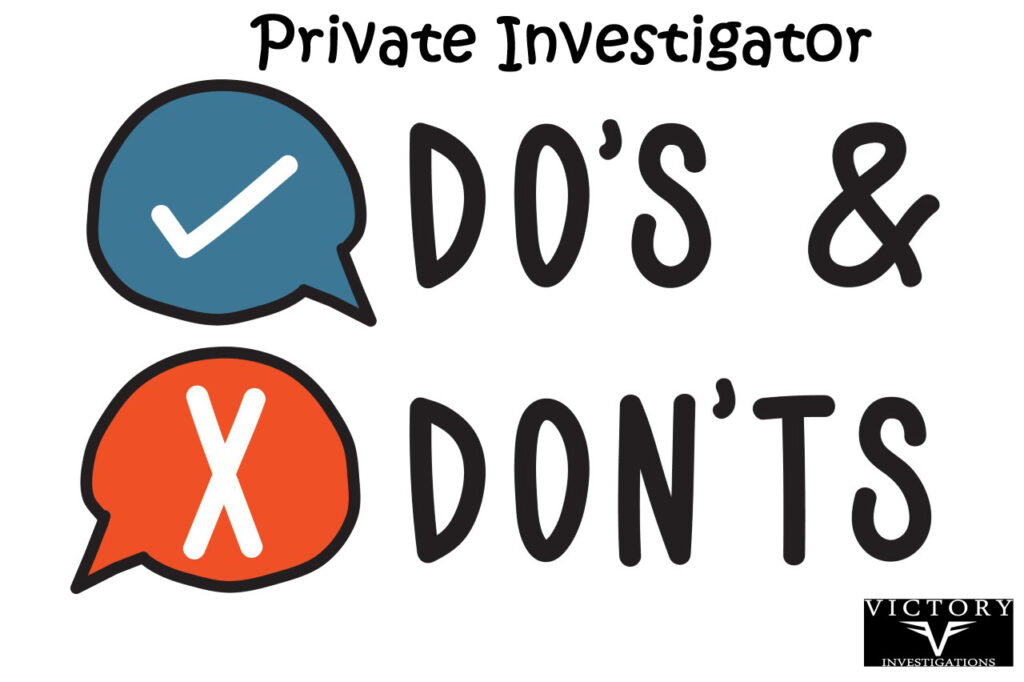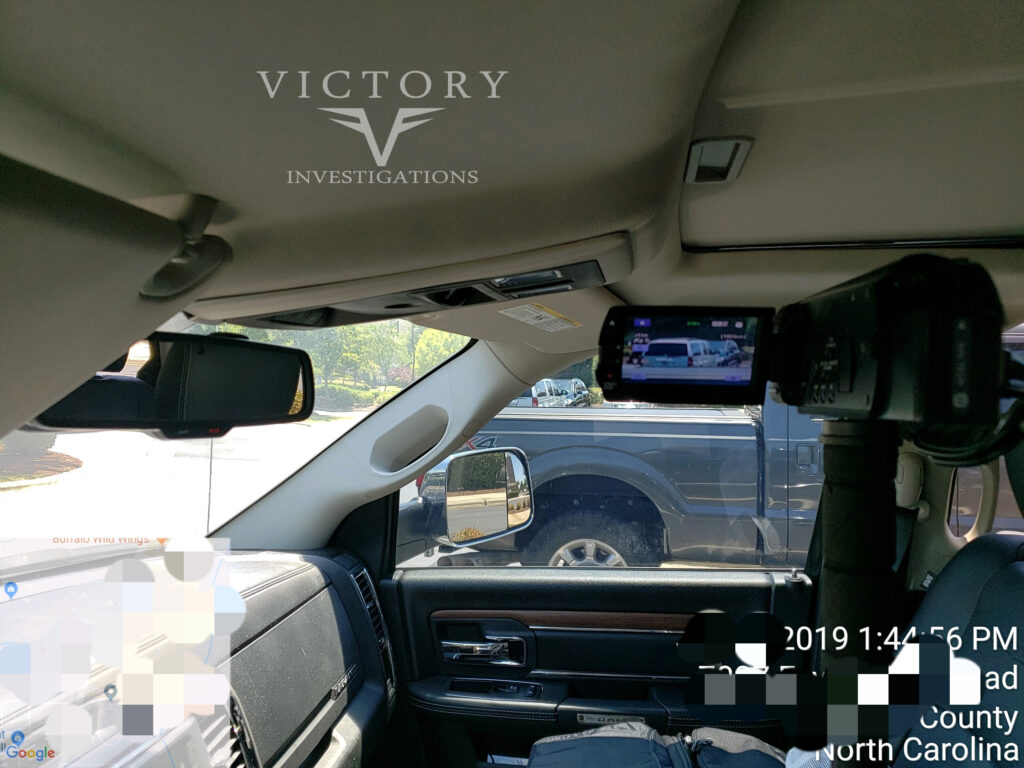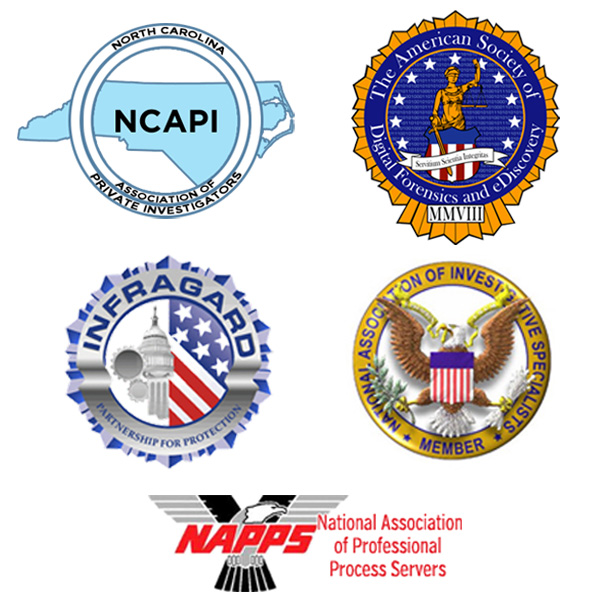
What A Private Investigator Can Do and What PI’s Cannot Do
Private investigators, or PIs, are hired by individuals, attorneys, or corporations to gather information about people, businesses, groups, or locations. However, they must follow strict rules and regulations to avoid breaking local or state laws and causing undue harm to the Subject’s that are under investigation.
In this article, we’ll explore the roles and responsibilities of PIs, their permissible actions (i.e. what a PI can do and what a PI can’t do), and why their services are often necessary. PIs are skilled professionals who employ innovative techniques to investigate individuals, businesses, or locations, always staying within legal boundaries.
They can be hired for various reasons, such as investigating behavior, monitoring business activities, or uncovering fraud. PIs perform diverse tasks, including background checks, surveillance, providing reports with court-admissible evidence, and locating missing persons. However, they must adhere to state laws and ethical standards to avoid legal issues.
Although PIs gather evidence discreetly, they lack the authority to arrest individuals. They are NOT sworn law enforcement officers. They will, however, present evidence to law enforcement or clients while maintaining confidentiality and legal compliance.
PIs must respect privacy and avoid unauthorized surveillance or data collection, sticking to legal means like field surveillance or accessing public records.
In essence, PIs are essential for gathering evidence within legal and ethical boundaries. Their adherence to guidelines ensures valuable support in investigative matters.
What Do Private Investigators Do?
Private investigators and private detectives perform various services, such as surveillance, GPS tracking of vehicles or other objects, in-depth background research, social media investigations and monitoring, private security or executive protection, service of process and much more. Often times private detectives are specialists. They will chose to specialize in an area of expertise, such as criminal defense, skip tracing, surveillance, or workers compensation fraud investigations. Victory Investigations specializes in infidelity matters, technical surveillance countermeasures and digital forensics.
Why Someone Hires A Private Investigator.
People hire private investigators for a variety of reasons. The reasoning usually depends on the information or evidence they seek to obtain. A private investigator must navigate the complex web of legal boundaries while conducting their private investigation. For example, a crucial aspect that a licensed PI is well-versed in is understanding when and how they can legally gather information about a person. Laws regarding what investigators can and cannot do vary from state to state. For instance, while it’s critical to know that a private investigator cannot break the law, such as by choosing to trespass on private property without consent, there are grey areas. They can utilize various database resources to find financial information, criminal records, and dig up assets, .
Furthermore, when it comes to surveillance, the rules about what private investigators can and can’t do are stringent. They cannot take photos in private places without the consent of the parties involved. Laws around audio recordings also highlight the differences between one party consent and two-party consent states, which means a private investigator may or may not be able to record a conversation without all parties involved knowing. Of course, this varies by state. Moreover, private investigators cannot hack into someone’s phone records or employ a wiretap without consent, showcasing the fine line private investigators must walk between gathering information and respecting privacy.
However, there are 5 things private investigators…
are proficient at, which include legally gathering vast amounts of information, tracking a person’s activities, conducting background checks, finding missing people, and uncovering potential fraud. These capabilities serve as reasons why individuals and corporations may hire private investigators. It is the precise knowledge of what private investigators can gain access to and the understanding of the limitations imposed on their operations that emphasize the importance of engaging a licensed private investigator. The adherence to legal limits emphasizes that while private investigators are able to provide invaluable services, they are bound by laws designed to protect the privacy and rights of all parties involved.
Can a Private Investigator Arrest Someone?
Private investigators must follow certain guidelines and laws when conducting private investigations. A licensed private investigator may gather information about a person without the consent of all parties involved, as long as there is one-party consent in the state. However, they cannot trespass on private property or break the law in the process.
Private investigators can provide security services, in some states, but they cannot arrest people. Arresting someone can only be done by a sworn law enforcement officer and within their jurisdiction. Even if a private investigator witnesses a crime, they cannot make an arrest. They must inform law enforcement, so that they may take action. Of course, if it is a life or death situation, anyone should act to protect the innocent.
Can Private Investigators Carry a Badge?
Some states allow private investigators to carry badges. Where problems can arise is when, how and where the badge is displayed. It is advised and often dictated that a badge NOT be displayed (in view) in public, by a private investigator or private detective. This is because it can be construed that the PI is attempting to impersonate a police officer or law enforcement official. Big no no. So, one might ask when and how could a badge be used or displayed by a private detective. One example would be, say the private investigator is working in an executive protection capacity or as private security, and a crime is being committed. The PI would, of course, attempt to protect his Subject(s) and contact law enforcement. When law enforcement arrives the badge could be displayed to the police to show that the investigator is one of the “good guys”. In reality, there’s very few permissible purposes for a non-sworn private investigator to display a badge.
Are Private Investigators Allowed to “Spy” on You?
Privacy laws are hotter than a jalapeño on a summer day, and private investigators better be on their toes to stay out of legal troubles with federal law enforcement, the state regulatory departments, and the local law enforcement. You might think private eyes are all about snooping in the shadows like they do in the movies (we do some, btw, the correct ways), but NO trespassing. Let me tell you, that’s a one-way ticket to legal trouble! Everybody’s got a right to their own space, whether it’s their home sweet home, their backyard oasis, or someone else’s private pad. Cross that line, and it’s cuffs faster than you can say “private eye.”

But hey, if you’re out in the open, fair game, right? Private detectives can snap pics and keep tabs on you in public areas as part of their services. Still, they better brush up on their local laws ’cause they don’t wanna end up on the wrong side of the law with their camera in hand. It’s all about playing by the rules when it comes to using those snapshots and recordings for their investigations.
Wiretapping, “bugs”, cell phone monitoring and compromising a persons network or computer is illegal without consent. A PI should not provide these services.
Are Private Investigators Hackers?
Let’s dissect this often misused and misunderstood term, “Hacker” and “hacking”. Virtually anyone can poses the skills and knowledge to perform hacking activities. Private investigators are not hackers, simply by being private investigators. Remember earlier when we mentioned that PI’s may chose to work within a specialty? Same thing here… A private investigator may specialize in certain areas of investigation that demands the knowledge and skills that a hacker would need. For example, penetration testing or pen-testing is a “white hat” hacking activity or service. This is where a company or institution would hire a pen-tester to come in and test the security of their network(s). The private investigator pen-tester would deploy exploits towards the company’s IT infrastructure to see if there are any vulnerabilities and then make recommendations for patching these threats to their security. One does NOT need to be a private investigator to be a penetration tester and vice versa, but they do exist and this is just one example of a type of hacking a private investigator may do. At Victory Investigations, we are a more technology forward private investigation agency, focused on digital forensics and advanced OSINT (Open Source Intelligence) services. We do not perform pen-testing, however, we hold Certified Professional Ethical Hackers (C|PEH) designation. With that said, we do not provide that service, rather we use that knowledge to better serve our clients in regards to their digital forensics needs.
Black Hat Hackers are what most folks think of when they think of hacking. These sorts of hackers do exist and use their knowledge to do harm, usually by stealing proprietary or sensitive data to later use against the person, company, or institution from which they stole the data. People ask us all the time if we, as private investigators, will do something nefarious to gain some insight or knowledge into a competitor of theirs, their spouse, or maybe even a neighbor. Our answer is always the same…. Can we do things like that? Maybe BUT, we won’t. Private investigators in North Carolina are licensed, by the state, and regulated by general statute. We are also bound to certain ethical standards. Now, are there unscrupulous investigators out there? I’m sure there are, but we are not one. Black hat hacking are not things that legitimate and respectable private investigators do.
Can a Private Investigator Video or Take Pictures Through A Window?
Generally speaking a private investigator can video or take pictures of people in public and from a public position. A PI should not take pictures through a window of a home – to the inside, where a person has a reasonable expectation of privacy. However, anything visible, outside the home, on a deck, in the yard, or even a screened porch would probably be fair game. Private investigators are not allowed to trespass, so their vantage point should be from a public position. What about inside a car or other vehicle? We have taken pictures and video through the windows of vehicles. We have captured affection between adulterers and drug use most often, while filming into a vehicle.
Can a Private Investigator Record Audio Conversations?
Private investigators can record audio conversations that they are a party to, without disclosing that they are recording to the other parties, in North Carolina. With that said, the legalities of audio recording of conversations vary from state to state. Be sure you are following your state’s laws regarding recording conversations, before taking that action. You could get in a lot of trouble AND whatever you record may not be admissible in court. Here is a link that may help you learn about what your state allows: Laws Regarding Recording Audio
Can a Private Investigator Confidential Banking Information?
No, private investigators cannot legally obtain confidential banking information without either consent or court order. There is certain information that can be obtained, but there must be a permissible purpose to do so. One such permissible purpose would be to obtain asset information for a collection action or child support action. But again, the information obtained would be limited and not include sensitive data.
Can Private Investigators Access Other People’s Social Media Accounts?
Yes. Private investigators access public facing social media accounts and use the information gleaned from posts, comments, and images to assist in their investigations. Private social media accounts cannot be accessed despite popular belief. There are some that will create fake accounts and attempt to befriend their target on social media. However, this practice goes against the terms of service of the social media platforms and information obtained in this way would likely not be admissible.
Are Private Investigators Allowed to Serve Legal Documents? Service of Process Explained.
Yes. Service of Process is a service that is often provided by private investigators. Usually, however, this is only after attempts have failed by the sheriff or other law enforcement. Again, a PI may not trespass to effect service and it is important that the investigator follow their state’s laws regarding serving legal documents or risk the job as being regarded as “improper service”. In North Carolina, an investigator must personally deliver a subpoena, but a summons and complaint can be sub-served or substitute service can suffice. It is always optimal, however, to deliver the legal documents to the specific person(s) named. Many people will attempt to avoid being served and in this situations a private eye is usually called in to assist. A PI will use “wait time” or surveillance to their advantage in order to get the person served. Or they may discover where the person to be served is employed and serve them there. Private investigators do not wear a uniform, so the defendant or person of interest will not suspect a plain clothed person to walk up to them and hand them the documents they’ve been avoiding to receive.
Can a Private Investigator Trespass to Serve Legal Documents?
As mentioned previously, no a private investigator cannot trespass.
Where Do Private Investigators Get Their Information?
Private investigators have a wealth of resources at their disposal. In addition to these resources, many PIs have become very savvy at obtaining hard to get information, through becoming experts in OSINT. From detailed and advanced queries to accessing the deep and dark webs, investigators can acquire more information than most of the general public. Public databases are fantastic resources, but a lot of people do not know where to look and more importantly how to look or use these sources effectively. There are also databases that someone without a license cannot gain access to. Many p-eyes have access to one or more of these databases. The will include more sensitive data and other credit header information. Do not discount the skills and access that a private investigator can have.





Speak Your Mind